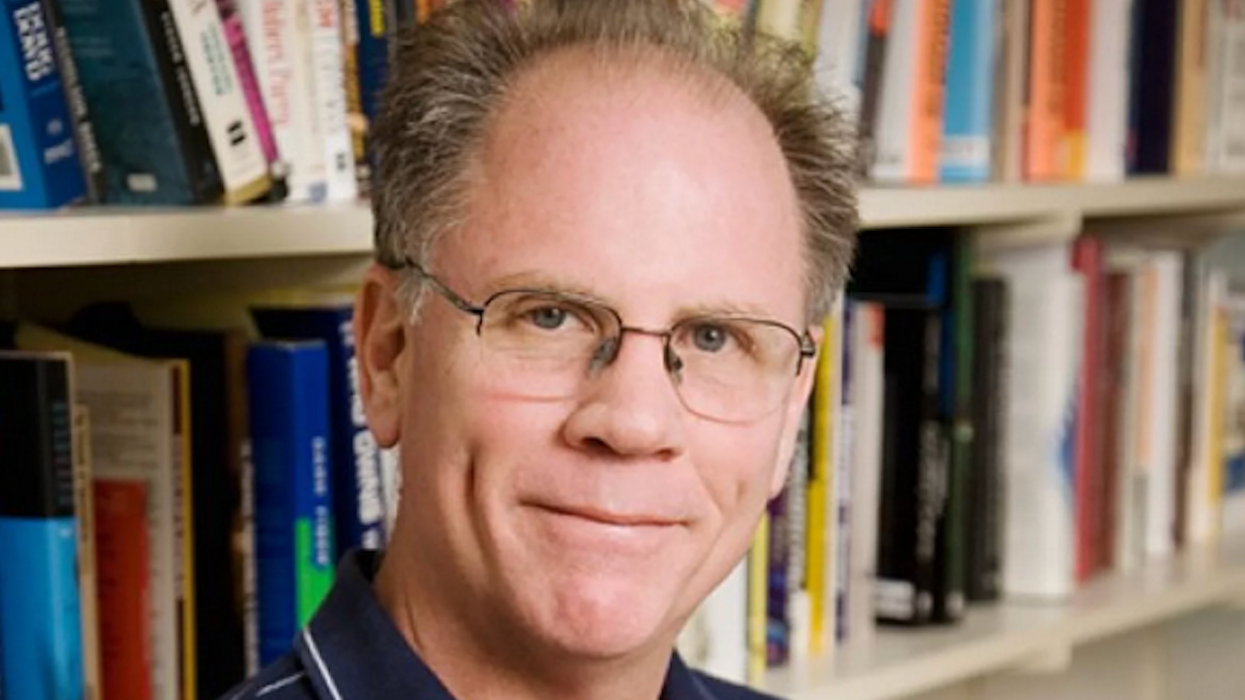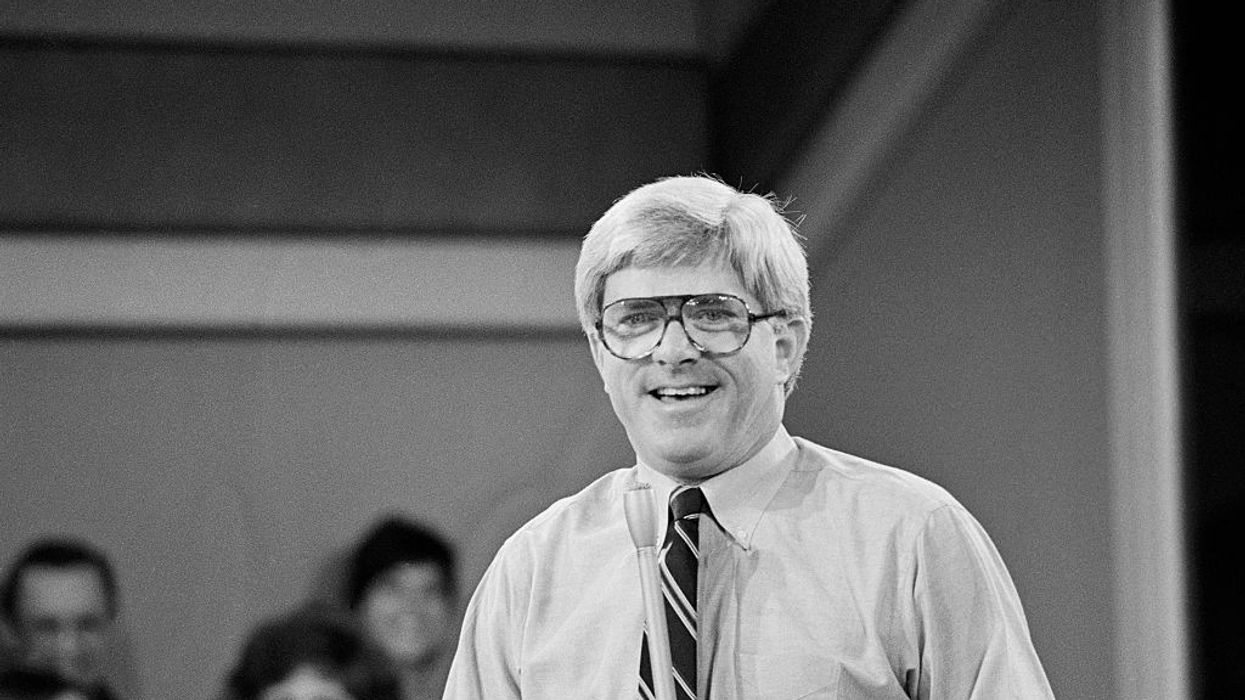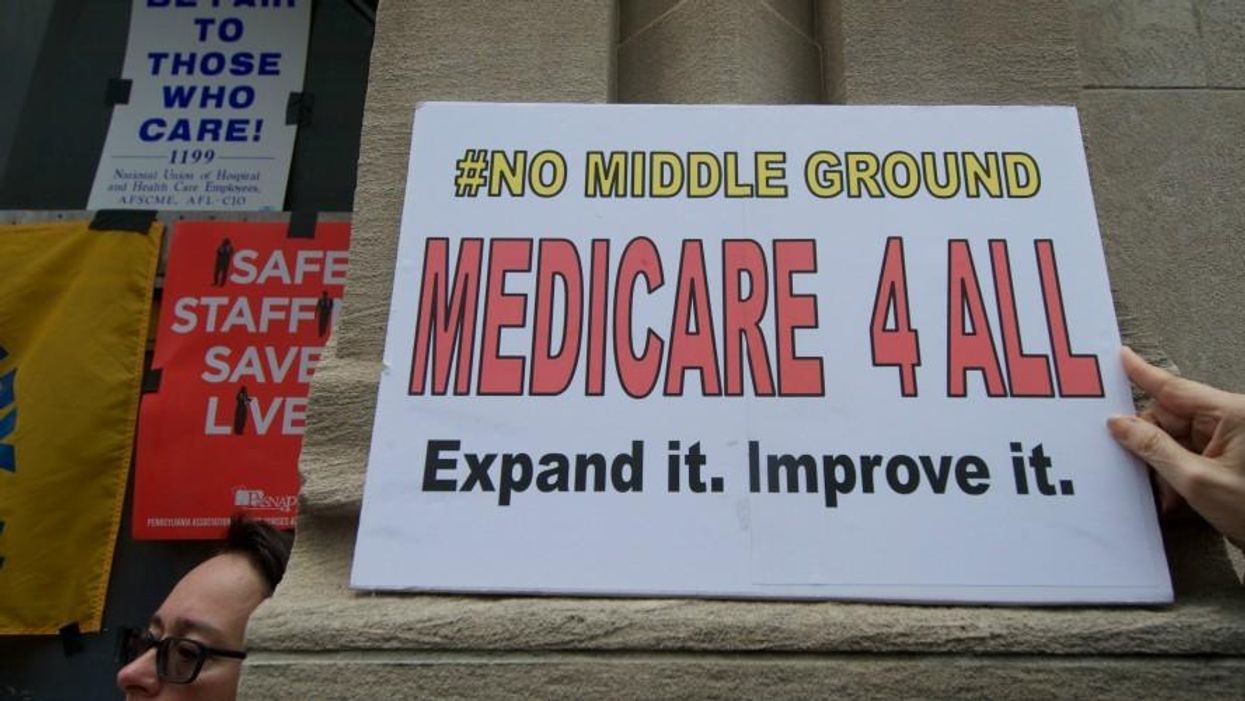He was the Gutgsell endowed professor in the Department of Communication at the University of Illinois Urbana–Champaign, and also co-founded the Illinois Initiative on Global Information and Communication Policy with Dan Schiller.
"Bob McChesney was a brilliant scholar whose ideas and insights reached far beyond the classroom. He opened the eyes of a generation of academics, journalists, politicians and activists—including me—to how media structures and policies shape our broader politics and possibilities," said Free Press president and co-CEO Craig Aaron.
"While McChesney spent much of his career charting the problems of the media and the critical junctures that created our current crises, he believed fundamentally in the public's ability to solve those problems and build a media system that serves people's needs and sustains democracy," Aaron continued.
"His ideas were bold and transformative, and he had little patience for tinkering around the edges," he added. "Rather than fighting over Washington's narrow vision of what was possible, he always said—and Bob loved a good sports metaphor—that we needed to throw the puck down to the other end of the ice."
A
Common Dreams reader, contributor, promoter, and supporter for over 25 years, McChesney will be deeply missed by all those associated with the independent, nonprofit news organization.
"Both in my personal political development earlier in life and as a working journalist in the profession," said
Common Dreams managing editor Jon Queally, "McChesney had a profound influence on how I came to understand media systems and the political economy overall."
"Rich Media, Poor Democracy pretty much changed my life, a book that I once taught to high school students—which they loved, by the way—as it explains, in an accessible but penetrating fashion, just how corrupting the news and information landscape can be when it is controlled wholesale by corporate interests," Queally continued.
"The world of media scholarship, journalists far and wide, and anyone who cares about a free press, a functioning democracy, and a better world has suffered a tremendous loss with the passing of Bob McChesney," he added. "Our hearts go out to his family and many friends."
Rutgers University communications professor Andrew Kennis also highlighted the importance of
Rich Media, Poor Democracy. He told Common Dreams that McChesney—who along with Noam Chomsky wrote openers to his 2022 book Digital-Age Resistance: Journalism, Social Movements, and the Media Dependence Model—influenced his own work.
"Bob McChesney's impact on media was immeasurable," Kennis said in a phone interview. "He was a steadfast public intellectual who inspired millions with accessible critiques of capitalism and its corrosive effects on democracy. He argued that the United States' descent into neoliberalism came at the expense of popular sovereignty."
Kennis said he got to know McChesney through Chomsky, adding that "Noam called Bob 'pretty much the best political economist' in the country, and practically the world."
"Bob very much self-identified as a political economist in general, but especially about communications," he explained.
In a 2013 appearance on
"Moyers & Company," hosted by Bill Moyers on PBS, McChesney joined with friend and frequent co-author Nichols, national affairs correspondent for The Nation, to discuss their book, Dollarocracy: How the Money and Media Election Complex Is Destroying America.
"Democracy means rule of the people: one person, one vote," McChesney explained to Moyers during the interview. "Dollarocracy means the rule of the dollars: one dollar, one vote. Those with lots of dollars have lots of power. Those with no dollars have no power."
U.S. Sen. Bernie Sanders (I-Vt.) wrote the introduction to
Dollarocracy. Jeff Cohen, founder of Fairness and Accuracy in Media (FAIR) and founding director of the Park Center for Independent Media at Ithaca College, called his friend McChesney a "proud socialist" who "told me how glad he was to go door to door" canvassing for Sanders when he ran for president in 2016 and 2020.
Writing for FAIR, Cohen
said that "no one did more to analyze the negative and censorial impacts of our media and information systems being controlled by giant, amoral corporations."
"Particularly enlightening was his 2014 book,
Digital Disconnect: How Capitalism Is Turning the Internet Against Democracy," Cohen continued, "in which McChesney explained in step-by-step detail how the internet that held so much promise for journalism and democracy was being strangled by corporate greed, and by government policy that put greed in the driver's seat."
"That was a key point for Bob in all his work: He detested the easy phrase 'media deregulation,' when in fact government policy was actively and heavily regulating the media system (and so many other systems) toward corporate control," Cohen added.
In 2015, at the National Conference for Media Reform in Denver hosted by Free Press, McChesney sat down with Common Dreams to discuss the importance of independent outlets as well as the inspiring promise of journalism that can "change the world" by exposing one person at a time to news or information they might not otherwise ever learn or come by:
Robert McChesney on Common Dreams
Nichols wrote for The Nation Thursday that while McChesney was a "globally respected communications scholar who was wholly welcome in the halls of academia," he "was never satisfied working within an ivory tower."
Indeed, a lesser-known aspect of McChesney's work was his immersion in one of the late 20th century's emerging music scenes.
"One of the first things that Bob did to have an impact on society was with the grunge movement in Seattle," Kennis told Common Dreams. "That was kind of his street cred before he went full nerd."
"Bob was doing some independent journalism and was studying in Seattle and was closely covering the emergence of Nirvana and other garage bands back then; that's how he got his first big dip into journalism," he said. "And he was a big fan, and part of the fabric of indie rock."
McChesney—who studied history and political economy at Evergreen State College in Olympia, Washington and earned a Ph.D. in communications from the University of Washington in Seattle in 1989—co-founded the The Rocket, an alternative weekly newspaper that highlighted groups such as Nirvana, Soundgarden, Pearl Jam, Screaming Trees, Sleater-Kinney, and Mudhoney as they rose to prominence. Ironically, The Rocket was sold to a big San Francisco publisher whose financial mismanagement killed the once-independent paper.
"Bob was a towering character," Kennis said, "always dedicated from the beginning to the end to the good fight."




